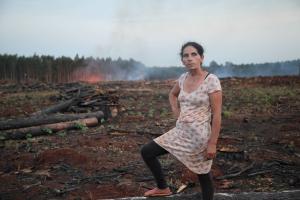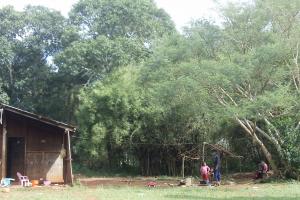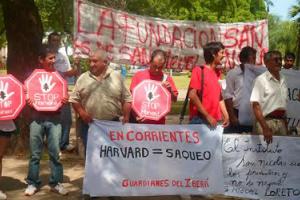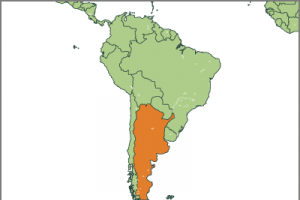The documentary recounts the recovery of land the cooperative of Independent Producers of Piray (PIP) in Misiones, Argentina, reclaimed from the multinational plantation company Arauco. After 14 years of struggle, the cooperative demonstrates that another production model is possible. Organic family farming produces food where some years ago, large-scale pines and eucalyptus plantations degraded land and jeopardized local livelihoods.
Argentina
Other information
26 September 2018
Other information
7 September 2018
Available only in Spanish
Bulletin articles
21 September 2017
Photo: Ecos Córdoba.
Located in the central region of Argentina, Cordoba is one of the five largest provinces in the country. Between 1904 and 2004, it lost 95 percent of its native forest, mainly as a result of the expansion of large-scale agriculture. Its annual deforestation rates are among the highest in the world, bringing serious consequences for the environment, health and food sovereignty of the population, according to researchers at the National University of Cordoba (1).
Bulletin articles
10 June 2014
Harvard University is the owner, through the Harvard Management Company (HMC), of the world’s largest endowment, which handles 32 billion dollars annually. Of this total, around 15% is devoted to forestry investments around the world.
Bulletin articles
30 October 2009
The Thirteenth World Forestry Congress (WFC) took place in Buenos Aires, Argentina from 18 to 23 October.
The history of these congresses started in 1926 in Rome. They are meetings that take place every six years in different host countries, attended by representatives of governments, civil society, the private corporate sector and the academic world.
Bulletin articles
30 October 2009
The World Forestry Congress taking place in Buenos Aires is viewed as an excellent business opportunity by the Argentine forestry sector.
Other information
30 August 2009
According to a research paper produced by Daniel Slutzky from the Conicet Centre for Urban and Regional Studies quoted by journalist Claudio Scaletta (1), in the Province of Salta “until the mid nineties sugar cane, tobacco and citrus, together with kidney beans were the traditional crops.” Later the kidney bean cycle shrunk because of the rise of the soybean. Today this crop occupies over fifty percent of the cultivated land in the Province and continues to expand.”
Bulletin articles
27 September 2008
Argentina: Indigenous and environmental activists sound alarm over plans to promote tree plantations
The Patagonia region of Argentina accounts for only 4% of the country’s tree plantations. This limited development of the sector is viewed by the Argentine authorities and forestry industry as a source of vast possibilities: four million hectares of potential plantation land divided among the provinces of Neuquén, Río Negro and Chubut.
Other information
2 March 2008
The Pampas of Argentina and Uruguay is one of the largest uncultivated grasslands in the world. Grasses have dominated the Pampas for at least three thousand years. Starting in the 19th Century eucalyptus trees were planted on small areas, for shade on cattle ranches and for construction materials. Today, the pulp and paper industry and the carbon offsets industry are expanding their operations in South America. Increasingly, they are targeting grasslands for conversion to large-scale industrial tree plantations.
Bulletin articles
17 October 2007
During the first fortnight of July, a wave of very cold weather crossed Argentina. In the warm lands of the Chaco Province, where the mean annual temperature is around 20ºC, temperatures fell below freezing. This abrupt drop highlighted by deaths the full dimension of the health and food emergency affecting Toba, Mocovi and Wichi indigenous peoples in that north-eastern district of the country, where health is undermined by malnutrition, tuberculosis and Chagas’ disease. In a matter of days 10 people had died, by 2 October the toll went up to 16, mainly from the Toba people.
Bulletin articles
8 February 2006
Argentina-Chile: Young Mapuche opposed to the advance of plantation companies seeks political asylum
On 6 December, 23-year-old Pascual Pichun Collanao, a member of the Antonio Nirripil community from the Temulemu sector in the southern Chilean commune of Traiguen, formally requested political asylum in Argentina. The young man had been on the run since November 2003 when, with his brother Rafael they decided not to give themselves up to justice after being refused the right to freedom under surveillance because they were unable to pay a court fine. The brothers had been given a 5-year jail sentence for setting fire to a truck belonging to Forestal Minico in March 2002.





